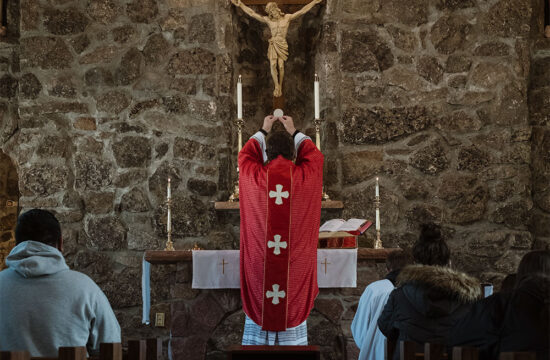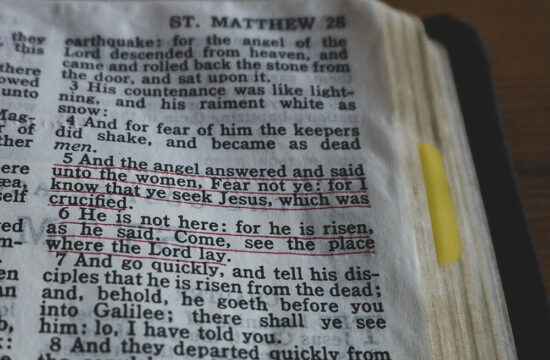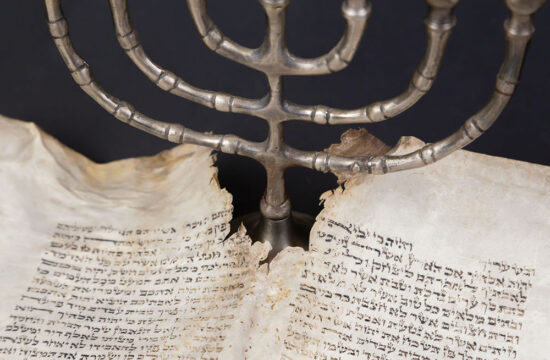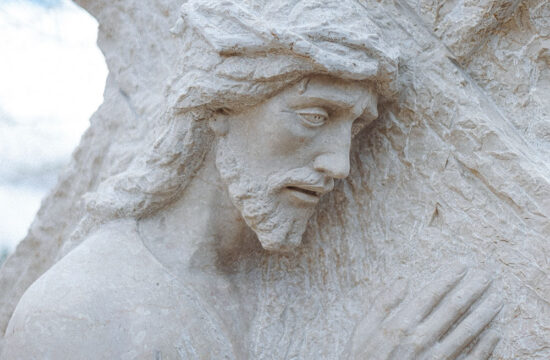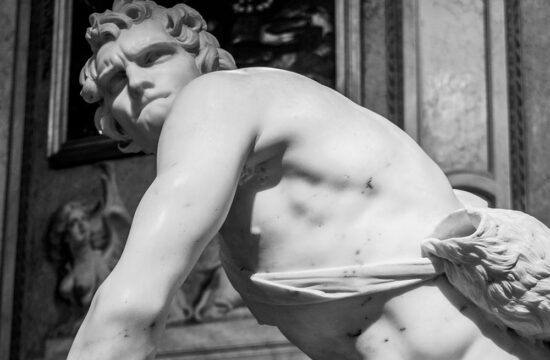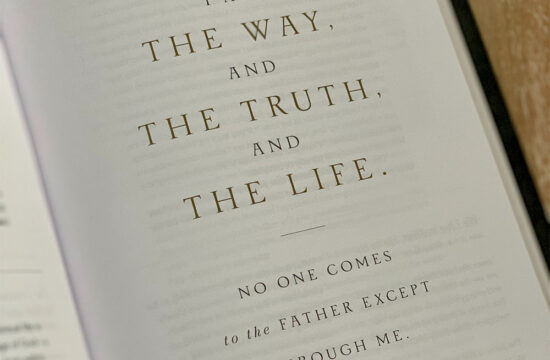DAY 81: Joshua 1-4; Psalm 123
NEW ERA, NEW LEADER, SAME GOD
Welcome to this the 5th “Period” in the Bible Time line that we’re travelling together – and God Bless you for your faithfulness and perseverance. It’s good to reflect that with our conclusion of the books of Deuteronomy and Numbers, we’ve now completed “The Pentateuch” – the “Five books” of Moses – which is also referred to as “the Torah” since it contains all the instructions, teachings and laws of God to His people. It is considered the foundation to the entirety of scripture. Hopefully, already, different things are emerging when you’re hearing scriptures at Mass. Particularly during this season of Lent.
So now we enter into this period called “Conquest and Judges.” We begin by reading the first 4 chapters of Joshua, the one chosen and commissioned by God to succeed Moses. As I was reading the first chapter, when we got to verse 16, we read “All that you have commanded us, we will do, and wherever you send us, we will go. Just as we obeyed Moses in all things.” In my bible, below that I wrote “Uh Oh.” Not exactly the vote of confidence I’d be looking for Joshua… just saying. The people have proven fickle, stubborn – or as God put it “stiff necked.”
In fairness, I shouldn’t be so negative. (Well, not that there’s a need for a spoiler alert, we have some idea how this story is going to go) Anyway, there’s a newness to the narrative that we read. Not to diminish Moses’ leadership or anything that preceded things to this moment. But you read an anticipation, a new energy in these chapters. It’s kind of like New Years Day, the first day of school, Super Bowl all wrapped into one. The expectations there relatives for generations had longed for, that this people have carried themselves are all about to be fulfilled.
With all the excitement building it would be easy for the Israelites to let their heads get too big for them. As the reports from the spies to Rahab recount that they learn basically the entire ancient world was in fear of the Lord (something the Israelites would forget from time to time themselves). They hear the stories of God’s wonders from the perspective of enemies to God. They took notice after all when Pharaoh wouldn’t… or when the Kings Og and Bashan were destroyed.
As these glories are recounted, it’s fascinating to me that the moment of entry into the Promised Land is a call back. They cross the Jordan river through similarly miraculous means that they had experienced in the Exodus. God parts waters once again for them and they cross the “river” on dry ground.
It’s an important reminder that as leaders come and go, history moves forward, that yes “new things” are taking place – it is the same God… The one who first set the worlds into motion, breathed his breath of life into ashen clay to create Adam and Eve, and has been jealously longing for a reciprocal loving relationship with His people. That remains even more true in our day and age. We who have been even more blessed and favored with the fullness of God’s revelation in Jesus Christ, who remains with and within us – alive and active, are even more blessed than our ancestors could’ve ever hoped or dreamed.
The saying is true: the more things change, the more they stay the same.
Thank God.
DAY 82: Joshua 5-7; Psalm 125
ANYTHING BUT BORING AND ORDINARY
As Fr. Mike and Jeff Cavins discussed in the intro to “Conquest and Judges” – these narratives are pretty packed and eventful! Chapter 5 starts out continuing the transition from the wilderness into the promised land. We read how the males are circumcised. During the time in the wilderness, the practice had been suspended (probably simply because of health and hygenic reasons with their continuing to be traveling in less than ideal locations and the time needed to recover and heal) But now that they are entering the Promised Land, they recognize the need for them to renew their being bound to the covenant with God, particularly before they celebrate Passover (the meal of the covenant) for the first time in their homeland. Once that meal happens, we read the manna ceases. It is no longer needed as they are coming into a land of their own. God will continue to provide for His people and nourish them, just in a different way.
It’s interesting to think how this mysterious, heavenly sustenance oftentimes had been unappreciated. Maybe it was plain. Maybe it wasn’t gluten-free. Maybe it was too boring and ordinary for them. Curiously, the same could be said of their first big “battle” upon entering the Promised Land. It wouldn’t be waged with brilliant military maneuvers, fantastic feats or sneak attacks. You couldn’t get more boring and ordinary than simply marching around a city in silence 7 days in a row, could you? I wonder if they were asking themselves as they were doing this “are we sure this Joshua guy is the one meant to succeed Moses?”
The manna and the marching, these seemingly simple things which could be easily dismissed are reminders of how they and how God was anything but boring and ordinary. The Israelites had, and would continue to have moments where they forgot that. But the world was watching. The Kings of the Amorites reacted to reports of what had happened with the Jordan drying up for them: “their heart melted… there was no longer any spirit in them” This enemy completely concedes without even trying to attack. The city of Jericho, after this silent procession encircling them daily – the entire city is leveled on the 7th day.
Even though they might appear that way, these externals were anything but boring and ordinary. The deeper significance to bread and marching is how they become fruits of being faithful to God. Too often as we look for something spectacular, we can miss the “miracles in the ordinary and boring.” And too often, we, like the Israelites, can quickly forget the importance of faithfulness.
Seriously, the next chapter (chapter 7), again we’re hearing a leader saying why have you brought us here to be destroyed. Don’t know if Joshua didn’t notice that some of his own did the one thing they were told not to do – or if he hadn’t noticed, could he really have imagined it was God who had become unfaithful? Sadly, sin can often be seen as ordinary and boring to us human beings.
But that’s not God’s vision. God sees us and everything about our lives as precious. Imagine if the Israelites took in all their “ordinary and boring” blessings? Imagine if we did?
DAY 83: Joshua 8 & 9; Psalm 126
LEARNING NOT TO FEAR
An interesting thing happens in Joshua 8. The Lord said “Do not fear” to Joshua – and his troops. This command wasn’t necessary for Joshua and the younger Israelites before. Before the sin of Achan which resulted in the death of 36 men in the battle at Ai.
Prior to that they felt invincible. They weren’t around for the times of slavery in Egypt – or all the struggle between Pharaoh and Moses which lead to the show down in the Red Sea. They weren’t present when Israel failed to enter the Promised Land the first time. They heard of these things from their parents. They were taught to be faithful, to be ready – and as a result all they had experienced was victory after victory. Crossing the Jordan on dry land (without anyone chasing after them). Levelling of Jericho without having to raise one arm in warfare.
All it took was sin entering in for this generation to experience fear… to start to have doubts and reservations. After the communal examination of conscience on the part of Israel; punishing of Achan; communal repentance and consecration of themselves once again to God, they experienced reconciliation and restoration with God. While God has forgiven them, the effects of sin still linger. Their courage is gone. Fear has entered in and they learn that’s not as easily healed, even with absolution of sins.
There’s no quick fix for that. The only thing that will eventually bring the healing they need and long for, is by listening to the Lord, being obedient to Him.
Sitting with this, I wonder how many of our fears are tied to our sinfulness. Our ability to see and trust God’s presence in the midst of the trials and struggles of life are diminished because we’ve fallen for the lies, the manipulations, the temptations by the devil. We’ve listened to those deceit filled words that diminished our identity, obscured God’s presence in our lives by our feelings of guilt and shame. Yet the Lord says over, and over, and over throughout scripture “Do not be afraid.” If we listened and obeyed in the first place, we wouldn’t need those constant reminders. Which is why it’s so great that we’re on this journey through scripture. Because maybe if we listen and obey that command, “Do not be afraid” trusting Him who says that to us, and continue to learn to listen to Him, we might finally break that vicious cycle and find the healing, the peace, the confidence we deserve to experience in being God’s beloved sons and daughters.
DAY 84 – Joshua 10 & 11; Psalm 128
THE LENGTHS OUR GOD GOES FOR US
While understandably some might struggle with the stories of warfare – it can be a hard read, even with Fr. Mike and Jeff Cavins explanations of it – the thing I’m focusing on and reflecting on is reading in Joshua 10:12 – how “the sun stood still” for the Israelites in order to complete their battle.
Scientists will point to episodes like this in scripture labeling them impossible. The cosmic implications of the Earth’s rotation to cease even momentarily are unimaginable. The more charitable critics would say “it might have seemed that way” or looked for another explanation.
Sometimes the simplest explanations are the correct ones though: The sun stood still. Would not the creator of the universe know the intricacies of his handiwork that might eclipse the human mind? Words like “impossible” “unimaginable” are limitations for us, not for Him.
We have a God who makes a way when no way seems possible.
We have a God who parts seas…
We have a God who rains down heavenly food to nourish…
We have a God who levels giants and cities through seemingly simplest of means…
We have a God who (for those who are reading this on March 25th, on this feast of the Annunciation) asks a young virgin girl if she’s willing to be the Mother of God – He lets one of His beloved creatures decide – and as she says yes, raises her in her lowliness.
We have a God who is so enraptured in love for us, that He will be willing to die for us.
The sun standing still seems pretty simple in the light of these truths, recognizing the lengths our God goes for us.
DAY 85: Joshua 12 – 14; Psalm 129
PROGRESS REPORT
Hearing the phrase “Youth is wasted on the young,” when you’re young, feels like an insult and when you’re older like a regret. I remembered hearing that phrase as a young 25 year old, newly ordained priest (who was the youngest priest for the Archdiocese for 3 years) a lot and remember feeling kind of ticked off by it – thinking it was a diss. Almost 22 years later, I can appreciate some of the subtlety a bit more. You have a greater clarity, a better vision of things – that you wished you had earlier… and most likely have a little less energy now to accomplish what you see as your task being set before you.
That came to mind reading Chapter 13 of Joshua today. Not only did Joshua know how old he was, how tired he was, God made a point of pointing it out. Try that the next time you send a note to someone for their birthday: Joshua 13: 1 “…and the Lord said to him, ‘you are old and advanced in years.’”
It seems strange, and almost cruel to cause an old man like Joshua to fight. It seems strange that Moses, who in his death is eternally remembered in scripture as “there has not arisen a prophet since in Israel like oses, whom the Lord knew face to face, none like him for all the signs and wonders which the Lord sent him to do in the land of Egypt, to Pharaoh and al his servants…” (Deut 34: 10-11) when you stack up their war records – Under Moses, 2 kings and 2 cities had been conquered, yet under Joshua that number was 31.
God is pointing to something bigger here (surprise, surprise). Lest there be any confusion, or ego, or false narratives – it was never Israel’s forces or any master mind work done by Joshua or Moses. God was the one fighting the battles and making the way. Yes, everyone from Moses to the Israeli troops all had a role to play. Which was being faithful, obedient, and receptive to God and His direction, following His law. It’s in that humility and submission that makes up for a youth’s inexperience and an old man’s weaknesses – where we recognize nothing and no one is wasted in God’s eyes. Everyone of us has a role and part to play in bringing forth His kingdom.
DAY 86: Joshua 15- 18; Psalm 130
BOLD FAITH
So in the facebook live the other night, I mentioned that some days the scriptures might not be as exhilarating as others. And more than likely I’m not the only one who felt that with these chapters of Joshua. Especially in comparison to some of the early chapters.
But there’s a reason we need to go through these (even if these might not be chapters you’re going to be returning to anytime soon!) Contained in the monotony and seemingly endless lists of names and places that are somewhat unknown to most of us – we get some moments of revelation that are profoundly meaningful in a gentle yet important way.
One of those that stands out in Joshua 15 is this section we read of Caleb’s faith and influence on others. Caleb had internalized a “can do it” attitude, but not out of pride or arrogance in his own ability but with conviction that “Our God goes before us.” When his daughter Achsah comes to Caleb, asking for his blessings on her life and marriage, she boldly asks for the territory that would’ve been considered the best neighborhood of all – where springs of water are that continue to this day pouring out 100s of gallons of water. Considering much of that area would’ve been dry and barren, this was obviously pretty important area to possess.
She goes to her good father, asking boldly, trusting that he desires to bless his daughter with what is best. Which is a pretty good model of prayer for each of us.
DAY 87: Joshua 19-21; Psalm 131
JESUS
OTHERS
YOU
So again, we’re in a bit of a “dry” section of readings as we continue to hear of names and territories and arrangements – with a few nuggets that re-enforce some recently discussed things – like the “refuge cities” being a sign where God is introducing a respect of the sacredness of human life, trying to inhibit that natural human impulse for vengeance, and even more, of Mercy. There’s the affirmation of God being faithful to His promises in the fullfilment of the “settlement” in those beautiful last words of Chapter 21: Not one of all the good promises which the Lord made to the house of Israel had failed; all came to pass.
For me though, having listened to Fr. Mike and Jeff Cavins reflections on the levitical priests not having territories of their own for an inheritance, since God himself was their inheritance – it was interesting reading how they were being scattered throughout all of Israel. While the idea of priesthood is different for Catholic Christians in the “priesthood of all believers” (meaning everyone of us who are privileged to be baptized) and the ministerial priesthood that Fr. Mike and I share – there are some similarities namely in that they are set apart for God, for His people in performing acts of holiness.
That came to mind reading chapter 21 and hearing how the priests were basically assigned to these different cities throughout the entirety of Israel. It brought to mind a few days after being ordained a priest when me and my 18 classmates all went to the Cathedral to be sent by our Archbishop to our first assignments. The thought that our time of being together as a class had ended and now we were spread throughout the Archdiocese (and our other fellow classmates from other dioceses throughout the country)
The notion that God’s priests are not meant to be in a bubble – but that we’re being sent out is not a new concept to me. It’s what we as Christians call “The Great Commission” where Jesus at his Ascensions commands His apostles, His disciples to “go to the ends of the earth and make disciples of all nations.” But it never really struck me as having origins in the Old Testament before. We see very early on the pattern of holiness and happiness found in the priests’ called to serve God, Others and themselves first. Or as we Christians would say it: to experience JOY – the priorities have to go “JESUS + OTHERS + YOU”
DAY 88: JOSHUA 22 -24; Psalm 132
TALE AS OLD AS TIME
This 20 year time with Joshua really flew, didn’t it? Well then again, we were following Moses for about 50 days and Joshua only 7, so yeah it did fly! But it was a pretty substantial period. The Promised Land had been settled by the 12 tribes. Warfare had ended. Treaties with other regions and leaders had been worked out. In a sense, the Israelites were experiencing something that had eluded them for centuries, freedom AND peace. Finally a “happy ever after.”
But we know that the story isn’t over. And Joshua as he comes to the end of his service and the end of his life offers his final words. When people make farewell addresses, offer last words, they are usually momentous and somewhat memorable moments. Not to say that this wasn’t, but what strikes me is how remarkably these words aren’t remarkable. They aren’t braggadocios or self-congratulatory. They aren’t new or unknown:
Remain faithful.
Joshua takes this final opportunity basically saying – it took us a long, long time to get here. It was an arduous, dangerous and painful journey. And most of the reasons for that long time, for the “scenic route” to get to the promised land were simply the people’s failures. Abandoning the covenant in one way or another.
It is the Lord God who fights for you – he so simply and beautifully says, a few verses later reminding them – but just as all the good things which the Lord your God promised concerning you have been fulfilled for you, so the Lord will bring upon you all the evil things…if you transgress the covenant of the Lord your God.
Sitting here, we know no spoiler alert is needed. We know what’s coming. Even if this is your first time reading the bible and you don’t know the specific things that are coming next, you know… we all do. Which is sad. Even more since as Catholic Christians, we know we have a Savior who completes and fulfills the story and offers us an abundance of His mercy, most especially in the Sacrament of Reconciliation.
What would have made the story different is if the Israelites had heeded Joshua or Moses, or any of the other times God had reached out to humanity begging them not to stray. Joshua reminds us God is eternal, and is unchanging, hence his final words are not unexpected. So we come to the reality that the only thing that will make this story different, is our response to it – and whether God’s people now become the faithful people He longs for.
DAY 89: Judges 1-3; Ruth 1 Psalm 133
WHAT YOU CALL YOURSELF
The Book of Ruth is an incredible treasure that should be a welcome break from some of the more difficult passages we’ve navigated as of late. Not that this is that fairy tale, happy ending story – or as Fr. Mike said in an earlier podcast, this isn’t a Hallmark movie either. Because, well, life is rarely (if ever) a Hallmark movie.
In any event, you recognize how imperfect this is going to be when in the first 5 verses we hear how Naomi loses her husband and both her sons. Putting ourselves back in the historical context, this is an ancient culture, being widowed and alone would leave Naomi in a precarious position financially, security wise – its why you will see such an emphasis in scripture of “care for the widows.’ There was not Liberty insurance, social security to provide. Not even to try to imagine the grief that this woman is suffering, to make matters worse Naomi is not in her native land. No extended family, friends or neighbors. A stranger in a strange land, suddenly feeling lost and abandoned. Naomi recognizing the realities she faced as an elder woman who is widowed very lovingly counsels the women to return to their mother’s home. While eventually Orpah relents, and does follow that wise advice, not Ruth.
Ruth utters the words Wherever you go, I will go; wherever you lodge, I will lodge; your people shall be my people, and your God my God. Where you die, I will die, and there I will be buried. Thus and more may the Lord do to me if anything but death part me from you. (Ruth 1: 16-17) – You’ve probably heard that at weddings, which should make you smile now when you remember that this is what a daughter in law is saying to her mother in law. But it’s more than that. Ruth is not just making this pledge to Naomi, but the Lord God. This Moabite woman has fallen in love with the God of Israel – and sees her connection to Him through Naomi.
Which sadly Naomi misses. Understandably, grief stricken – she’s letting that cloud the generosity, the care, the love that Ruth is displaying for both her and the Lord God. And that darkness clouds her to saying “don’t call me ‘Naomi’ (which translated means Pleasant) call me ‘Mara’ (which means bitter).
Life has not been a Hallmark movie for Naomi – but we will not call her Mara. We can appreciate how she might feel like Mara for legitimate reasons. It’s one thing to feel something. Feelings are important to pay attention to. They give a lot of important information. But we have to be really careful about letting them become things we accept as part of who we are – IM AN IMPATIENT PERSON – I HAVE A SHORT FUSE – even to go so far as to let that change our very name and identity. That’s not who God created us to be, calls us to be. Even when we’ve failed and fallen and felt like we’ve squandered all that God has done for us, He’s still madly in love with us. Even in our darkest, dreariest, most devastating of moments when it seems like he’s so – distant, as Ruth demonstrates a reluctance to ever leave Naomi’s side, the same is true for God.
As we begin this beautiful story, what are some of the names you’ve accepted for yourself, labels that others attached which have diminished your self-worth or obscured your beauty as one of God’s masterpieces? What lies has the devil tricked you into believing about yourself in struggling with some sin, some failure, some weakness has you calling yourself something other than His beloved sons or daughters? Who are the “Ruth’s” trying to speak God’s blessings and favor into you right now to remember your God given name and identity?
DAY 90 – Judges 4-5; Ruth 2; Psalm 134
BITTERNESS FADES IN LOVE
For some of the romantics out there, you’re already hearing the music playing with the title of “Ruth meets Boaz.” Those romantic overtures aside, this chapter is filled with an abundance of love. Remembering, first how Ruth’s extraordinary and unexpected love for Naomi, and “her God” making Him “my God” Naomi compels her to leave her native home and what was familiar to her.
While we ended Chapter 1 with Naomi blinded by her misery, she is touched by her daughter-in-laws selflessness and is moved with love and care for her. “Go my daughter” she says to her as Ruth goes out in search of food. Her grief at losing her husband and sons is great – but this seemingly subtle change from “daughter in law” to “daughter” is significant. She is not simply focused on being the recipient of Ruth’s selflessness, but she is adopting the young woman as her very own herself.
As Boaz meets Ruth, what makes her most attractive in his eyes? “All that you have done for your mother-in-law since the death of your husband…how you left your father and mother and your native land and came to a people you did not know…” Yes – that’s true beauty. Which elicits true beauty in Boaz’s response: not simply protection and provision – but prayer: The Lord recompense you for what you have done and a full reward be given you by the Lord, the God of Israel whose wings you have come to take refuge!”
At the end of this eventful day, coming home to Naomi, Naomi is amazed at the amount Ruth has collected – which would’ve come to at least 30 pounds of food. Such an abundance startles her. She recognizes the kindness of Boaz, and something more “The Lord whos kindness has not forsaken the living or the dead!” This power of love from this cycle of selflessness and sacrifice is healing to open Naomi to the possibility – Maybe God has not forsaken her either.
DAY 91: Judges 6-8; Ruth 3; Psalm 135
ANOTHER SOAP OPERA
It’s been awhile since our bible reading got a bit dicey. Chapter 3 sounds like a typical soap opera, doesn’t it? A mother-in-law trying to play match maker. A young widow who’s moved by another man’s generosity and kindness. The older bachelor being taken with her as well. There’s midnight rendezvous’ and concerns about legal entitlements in terms of the “marriage.”
What makes this little story so unique – and why we’re reading this right now is that the story of Ruth takes place during the time of Judges. Someone commented yesterday after reading Judges, this was almost a relief to read. Which is spot on. Judges can get brutal and ugly and we’ll come to a point where the scripture even observes “Everyone did what was right in his own eyes (Judges 21: 25)
As complicated as life has become for Naomi & Ruth… as honorable a man as Boaz in terms of seeing the plight of this young woman, recognizing his own feelings for her while at the same time recognizing what would be the most legally appropriate scenario in this situation leaves him perplexed.
But unlike in Judges where they are doing what is right in their own eyes, Boaz is determined to remain the faithful, virtuous man he has been. The chapter ends with the word “Wait.” The one thing that no one wants to hear – whether it’s in our temporal lives and in addressing something we want or are in need of – or in the spiritual life, when our prayers seem not clearly answered. But for these people who love God, they’re breaking the pattern and cycle of simply giving into their gut impulses, emotions and desires. They’re able to wait for some discernment, some reflection… for the Lord to clarify the road ahead.
DAY 92: Judges 9-11; Ruth 4; Psalm 137
GREAT IS HIS FAITHFULNESS
If you’ve ever watched the show “Everybody loves Raymond”- while the title says the main character is Ray Barone, who’s a husband, a father, a brother, a son – anyone who has watched the show that it’s not really all about him. An equally main character is Marie – the Mother who whether she’s on screen or not, the story is just as much about her as it is her son. Same is true for the Book of Ruth. It’s not just a story about this gentile woman who’s Jewish husband dies and how that tragedy leads her to truly discovering and knowing the God of Israel. It’s equally a story about Naomi – herself a widow who went through the unbelievable additional losses of both of her sons. An understandable sadness that had her saying that she no longer saw herself as nothing but “bitter” that she changes her name to that.
But God never recognized that name change. Through Ruth, He was sending her a message of His love for her. Yes He saw her unimaginable grief. Yes He knew her pain. And He uses this most unlikely of circumstances and vulnerable of environments to establish the lineage that will bring forth not just one, but two significant offspring. First King David – and then eventually, God’s own son, Jesus. As we come to the end of this short, but signifigant book it’s important to review all that
Yes Boaz in the historical, societal norms of that day and age, “redeems” Ruth from being a childless widow. But that’s only part of the story. For all of our women readers, who understandably might have felt that these old testament scriptures seem to treat women as less than men – we read how this “gentile” woman’s simplicity, selflessness and love has made her “more than seven sons.” We can’t ever underestimate the importance of genuine, sincere love. But even more how God was working through this story of a Mother and her daughter-in-law. God including them into the very fabric of the story of salvation in an unmistakably essential way: As Naomi holds her grandson in her arms, we have to imagine her not being able to call herself “bitter” anymore. She understandably loved and would always miss her husband and sons. But in the birth of her grandson, her grief is turned to joy. A joy that, as wonderful as it truly is, she’s only getting a glimpse of.
The stage is being set where our God will enter into the deep human sadness and despair of our brokenness and sin and will redeem it through His son Jesus. The misery of the world will be turned into joy…
DAY 93: Judges 12- 15; Psalm 146:
NOT SKIPPING THE HARD PARTS
I had to laugh the other day when Fr. Mike was prepping people for the fact that the book of Judges seems to get worse by the day and that some might want to screen whether they will expose themselves to these chapters. Which I completely understand. Everyone’s at a different point in their faith journey’s – and even though we’ve shared many times that just because something is in the bible doesn’t mean it’s God approved or what He intended or hoped for. And we have a variety of different literary genre’s we’re encountering along the way as well.
But one reason I find Judges fascinating and an important read is precisely because it is so awful. The reality that instead of “white-washing” or editing the story to make the people look a certain way, to make God act in certain ways would be the temptation of very human writers who would be interested in telling a story of their own creation. That this is a historical record of some of the worst of Jewish history reminds us that this is a very real religion. These places are historical places, these people lived and walked in these cities and lands… and some of them did some really sinful stuff. And some did some really horrendous stuff.
And all the while, God is remaining faithful to His covenant and at the same time having to react and respond to the messes of humanity, continues to to guide and lead and correct His people and often times has to make a new way out of a new mess that humanity has wandered into.
The consoling message to me is that in the face of modern human atrocities, it’s easy to imagine God has abandoned His people. That His favor has lifted, His blessings ceased and that we’re either being left to our own devices or being punished for some (or many) wrong doing. God is not angry, dismissive, or silent. As we see the figure of Samson step forward, the might and power in him isn’t from supplements or great training, but a supernatural gift. Which is what makes his arrival welcome news. Yet the truth remains, that “supernatural power” only remains as Samson remains faithful. He’s not in possession of this on his own power or for his own glory. When he forgets that, the unfortunate cycle we find difficult to read (and even more, struggle with in our own lives) continues.
Yet, the mere presence of this book shows a remarkably patient and loving God who continues to not give up on us… with the hope that perhaps His people will try to stop making it so hard for Him to do so.
DAY 94: Judges 16-18; Psalm 147
CUSTODY OF THE EYES
So I had to laugh to myself thinking “of all days for me to get a haircut,” that this would be the day I read chapter 16 of Judges, with the story of the ultimate of bad haircuts. In all seriousness though, we know that’s not the case. It wasn’t Samson’s hair that was the problem – it was his eyes. Yes he had followed the “Nazarite vow” of not shaving. But it was more than an external list of requirements for personal hygiene and what is obvious was that there was not the internal transformation and conviction of heart that the vow had required. Throughout his life, he had falled into temptations and not been an honorable and faithful man. His eyes which had lusted after woman throughout his life, in this last episode after lusting after Delilah, would cost him his life.
The sad ending for one of Israel’s judges reminds us of the reality that rarely does one fall into sin out of the blue. A person abusing drugs doesn’t set about to become a hard-core addict – it was a moment of weakness – I’m too tired, too stressed, want to feel different – that an offer to just try something that internally we know is wrong where that battle was really lost. Or for someone who has an adulterous affair. Rarely did that “just happen.” There was most likely flirtations, there was a distancing from ones spouse, there was some lack of honesty that entered in and created the environment where that sin somehow became a justifiable option.
The hopeful note is that, even here before Jesus, Samson experiences a final redemption. As he calls out to God, his voice is not ignored… his prayer is heard. The Lord uses Samsons contrition and newfound humbleness in this lowly condition to punish the evil that is being committed by the Philistines. In a sense, it’s the ultimate of deathbed confessions and conversions.
In our reflecting on this, the call is to confront and reject sin in its smallest (most venial states) – and if (or rather when) we screw up, not to wait or allow the devil to continue to twist our mind and heart in justification games and excuses… setting outselves up for worse sins or the possibility of not being able to repent.
DAY 95 – Judges 19-21; Psalm 148
WHO KNEW JUDGES COULD BE EVIL???
Having a book titled “Judges” there’s an inherent sense of rightness, justice simply in the name – that this whole experience of reading this book for the last week has been beyond disconcerting. One fellow traveler in this Bible in a Year group in a message simply said “even stories and people I thought I knew, I’m learning really quickly how they are far from the heroes I had in my head. Had you asked me about Samson before this study, I would have had him on the “good guy list” from the Bible.”
And that was before we even got to these ending chapters where rape, murder, using and abusing, a shrug of the shoulders mentality has taken hold where, we read again those jarring – yet sadly, all too familiar words: Everyone did what was right in his own eyes.
Pope Benedict XVI years ago wrote warning about the “dictatorship of relativism” – a world in which there are no “absolute truths” where it goes beyond someone saying “don’t tell me what to do” – to “don’t tell anyone what to do.” It’s said that there’s nothing new under the sun, and this awful walk through the book of Judges seems to bare out the negative aspects of that saying.
When we look at our world, our country, our lives – we can see the effect of this “relativism.” How many sinful things do we encounter on a regular basis that we just put up with saying “well I can’t avoid it… its just life?” I remember Fr. Mike in a talk he gave to thousands of college students talking about how at one point he had never watched a particular TV show because even though it was on network TV in prime time some of the language, characters, situations were just not right. Then he ended up seeing the show a few times and then before he knew it said he found himself laughing at some of the antics just kind of dismissing it as “oh that’s just so-and-so” referring to some particular character in the series.
That’s how sin metastasises. These judges at some point started out on the right path. But was it pride or power, was it arrogance, or envy that crept in? That sat there and turned them on this path to ruin? The point is, the minute these judges, or anyone of us “does what is right in our eyes” – when those eyes are connected to heart, soul and mind rooted in Christ, it’s not too long before we see how quickly the noblest, most virtuous of individuals falters.
– – – To end this on a more upbeat note… first off, we’re done with Judges 🙂 Secondly, in a few days we’ll start the Gospel of John. I know I’ve mentioned it to you before, but if you haven’t heeded my calls before, 1 – You need to watch “The Chosen” – the multi-season/multi-episode telling of the Life of Christ from a most unique vantage point. It’s free, look up “The Chosen” in your app store. So season 2 episode 1 dropped last night, which I promise you is perfectly tuned for us at this point preparing to start John. BUT here’s the catch, you really can’t just watch that new episode if you’re not familiar with the season. Season 1 is 8 episodes ranging 30-50 min each. I’ve publicly admited I’ve wept multiple times at multiple screeings of this show. It. Is. That. Good. And I really think getting caught up and seeing this new episode will blow our colletive minds reading the Gospel of John this week. So hopefully you can clear some time for that this week 😀
DAY 96: 1 Samuel 1-3; Psalm 149
HANNAH AND MARY: EXULTANT HEARTS
We made it out of Judges in one piece! Listening to Fr. Mike’s reflections on those closing chapters yesterday, I smiled that we both found ourselves drawn to a similar conclusion on “relativism.” (For the most part, I’ve been pre-reading these scriptures and writing my reflections the night before the podcast drops since they were getting to be too late for me, so it’s been interesting for me to see when we find ourselves focusing on similar themes)
Fortunately our attention now moves to the birth, raising and calling of one of God’s great prophets, Samuel. One of the beautiful things that stood out to me was Chapter 2 which is called “Hannah’s Prayer.” Catholic priests and religious as part of our daily prayer, every evening pray the “Magnificat” from the Gospel of Luke which is very similar to Hannah’s prayer, but in that instance, is the Blessed Virgin Mary’s song of praise at the conception of Jesus by the overshadowing of the Holy Spirit. It’s so beautiful to recognize how essential these two women, these two Mothers were in the story of salvation. Hannah is almost a prelude to the Blessed Virgin Mary – And Samuel will be important in establishing the importance of David, which will be the “royal lineage” that Jesus’ family roots will tie to. We can find all sorts of interesting parallels between Hannah and Mary – two miraculous conceptions; two women who’s hearts were perfectly attuned to serving the Lord God; two women who overcame fear; two women who trusted the messages they received from the Lord.
But most striking is seeing the effect of these realities in their lives. They both are moved into deeper humility, reverence and awe. There’s not a whiff of entitlement, or frustration that things didn’t happen a particular way. There’s simply hearts that are filled with wonder and praise. “My heart exults in the Lord” Hannah cries – “My soul proclaims the greatness of the Lord” Mary echos.
After reading of the horrors of disobedience and lack of faith, enter these holy women who call our attention back to the beauty of faithfulness and the blessings of God.
DAY 97: 1 Samuel 3-5; Psalm 150
NO SURPRISE TO ANYONE
Most priests know the story of “The Lord Calls Samuel” – it is usually included in some manner into discernment retreats and reflections throughout our time in Seminary. And while there’s beauty in the simplicity in Samuel being taught to identify the Lord’s voice and the proper response, what’s interesting is that for most of our reflections, the chapter is cut off at Samuel responding to the Lord. I don’t recall it ever focusing on the first prophecy he has to deliver which is indeed bad news for Eli.
What is interesting is that Eli, has to threaten the prophet in training that should he not share what the Lord had told him, that Samuel would be cursed with worse than what God had promised on Eli. Interesting though when you stop and think about that for a second, Eli knew. He knew that it wasn’t good news coming his way. He knew that what he had done in God’s eyes, the “iniquity, the blasphemy” had put him out of God’s favor.
Despite countless experiences so far, God’s people haven’t learned that they cannot manipulate God or force him to act in a way of their wanting or liking. Which is even more dramatically demonstrated in the next chapter. After the Israelites lose in war to the Philistines, thinking “we know how to FORCE God to fight for us, we’ll bring the Ark of the Covenant into battle.”
To me this seems like one of the worst blasphemies we’ve encountered so far. This most sacred of items, intricately designed by God Himself as a place where His presence would remain among them, they wield out as a weapon in battle for a fight of their own choosing, not God’s. (Good reminder to be careful about using God and His word for one’s own purposes…)
Rather than them protecting the Ark, recognizing its sacredness and the importance to them and their identity, they put it at risk for their own selfish wants. It probably never even crossed their minds that they could actually lose the ark; forgetting how often they had squandered God’s blessings, His love and protection, His favor… which really should pale in comparison to this sad chapter.
It’s really not that earth shattering of a revelation, that if people don’t want to lose sacred things, they shouldn’t act sacrilegious. Yet from the Garden of Eden up till our day and age, humanity acts as if it is. The effects and impacts are indeed constantly earth-shattering, and debilitating. But that’s not news. What is, is what God is able to do with faithful, obedient servants who instead of following those selfish human impulses constantly say with sincerity of heart: Speak Lord, your servant hears.
DAY 98: 1 Samuel 6-8; Psalm 86
REVERENCE FOR GOD
Reading about the effects of the Ark of the Covenant having been lost by the Israelites to the Philistines, it’s fascinating to see how these non-Jewish people seem to have a better respect for the Lord God then some of those who had entered into covenant with Him. The Philistines, after seeing their gods defeated, after suffering plagues themselves, what is their response? They need to repent of their sinfulness in capturing the ark, they need to make a guilt offering, they need to return the ark to God’s people. It’s the complete opposite of what happened in Egypt… in that instance we kept reading of this “hardening” on the part of Pharaoh whose arrogance, whose anger, whose ego would not let go, even after all of those things resulred in the death of his first born. The Philistines experience a mere fraction of the devastation and their remembering of the history of God and how he protects His people was enough to say, “enough.” They have the humility to concede that their “gods” were no match for the Lord God.
Yet the Israelites – well at least about 70 of them – somewhat remarkably as well – seem to lack that reverence that these “enemies” had. Only the priests were permitted to look at the ark itself, not even they were too look inside it. Yet this group of 70 did just that… which results in their death. Have to wonder if these were some of the folks who had thought it was a good idea to use the ark in the first place to force Him to fight for them in the battle with the Philistines, resulting in their losing the ark.
It’s kind of confounding to imagine people who aren’t even believers having more respect, more fear, more awe for God then those who claim to be His people. (Perhaps they need another 40 years in the wilderness 🙂 ) But remarkably, as we come to the end of this section of Judges, we see God giving into their requests for their own King. Setting the stage for God to enter into the history of humanity in a way our ancestors could never have imagined – as we have our first “Messianic checkpoint” starting tomorrow <3


